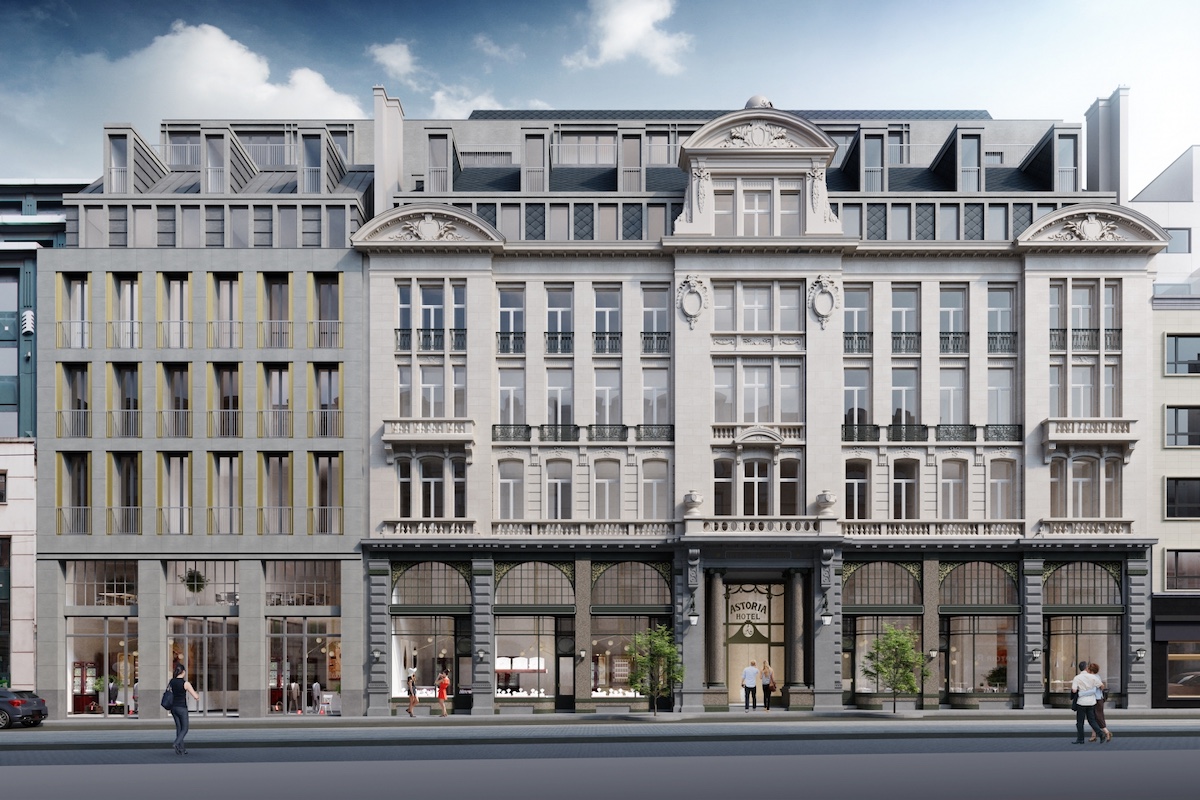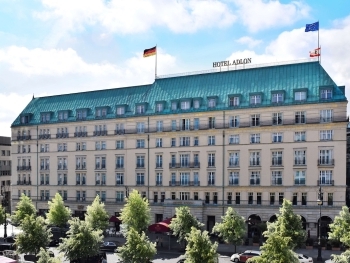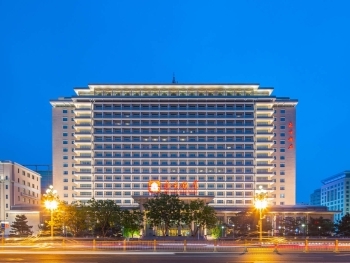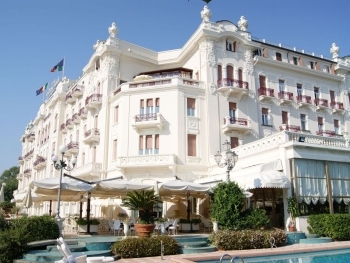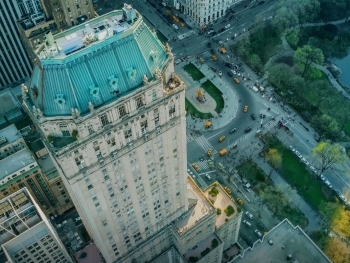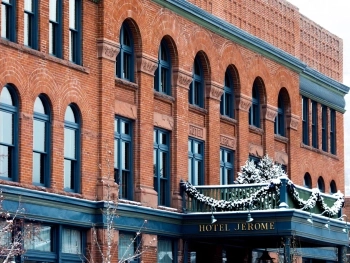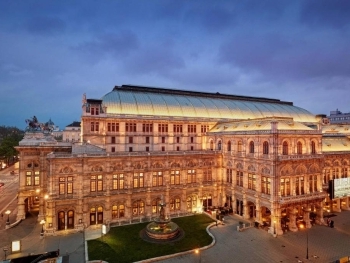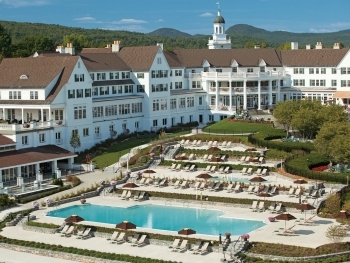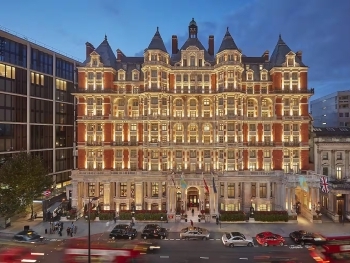For over a century, Hotel Astoria has stood as one of the most iconic and luxurious hotels in Brussels, Belgium. Since its opening in 1909, the Astoria has symbolized elegance, offering world-class accommodations to aristocrats, diplomats, and prominent guests from around the world. Known for its neoclassical architecture, grand interiors, and central location, Hotel Astoria is a true architectural gem, embodying a rich heritage in European luxury hospitality.
Despite changes in ownership and restoration projects, the hotel’s legacy as a place of elegance and refinement has only deepened over time. Hotel Astoria’s proximity to Brussels’ top attractions, combined with its storied history, has secured its reputation as one of Europe’s leading luxury hotels. It remains a celebrated landmark and a vital part of Belgium’s hospitality heritage.
The History of Hotel Astoria
Early Beginnings: A Luxurious Vision in 1909
Hotel Astoria was built in 1909 by Belgian architect Henri van Dievoet, renowned for his contributions to Belgium’s architectural landscape. The hotel was commissioned by King Leopold II to host dignitaries attending the Brussels International Exposition in 1910. From the beginning, Hotel Astoria was conceived as an opulent establishment meant to showcase the grandeur of Belgian hospitality.
Henri van Dievoet designed the hotel in a neoclassical style, with French influences and a focus on opulent interiors. Its unique architectural elements included marble columns, intricate ceiling moldings, and grand chandeliers, setting a new standard for luxury in Brussels. The Astoria quickly earned a reputation for sophistication, attracting European royalty, American industrialists, and world-famous artists, who often returned to experience its unique charm.
A Royal Destination
Over the years, Hotel Astoria became the preferred choice for royal families, dignitaries, and VIPs visiting Brussels. The hotel hosted an array of prominent guests, including Winston Churchill, who famously stayed at the Astoria during his visits to Belgium. The King of Spain, the Queen of the Netherlands, and other European monarchs also frequented the hotel, contributing to its aura of exclusivity.
Hotel Astoria's guestbook includes the names of numerous political figures and celebrities who found in it a sanctuary of elegance amidst their demanding schedules. With each distinguished visitor, the hotel's reputation as a world-class destination was solidified, and it became an integral part of Brussels’ high society.
Challenges and Restoration Efforts
Throughout its history, Hotel Astoria faced several challenges, including the impact of both World Wars. The hotel survived these turbulent times but underwent periods of decline due to financial and maintenance difficulties. In 2001, the property was recognized as a national monument, emphasizing its architectural and cultural importance in Belgium.
In the early 2000s, the hotel was acquired by the Corinthia Hotels Group, which announced plans for an extensive restoration to restore its former glory. The renovation project was launched with the aim of preserving the building’s historic charm while incorporating modern amenities to meet contemporary luxury standards. After years of careful planning and restoration, the reopening of Hotel Astoria is highly anticipated, with the Corinthia Group dedicated to revitalizing this legendary property.
Architectural and Design Highlights
A Testament to Neoclassical Architecture
Hotel Astoria’s architectural style is a classic example of early 20th-century neoclassicism, with design elements inspired by French and Belgian aesthetics. Henri van Dievoet’s design showcases intricate detailing, with emphasis on symmetry, grand columns, and ornate moldings that reflect the hotel’s commitment to opulence.
The hotel’s façade features a blend of white stone and marble, punctuated by expansive windows that allow natural light to flood the interiors. The lobby, adorned with marble flooring and decorated with elegant tapestries, leads guests into an environment of refinement and grace. The main staircase, with its curved balustrade and decorative ironwork, is one of the most photographed areas in the hotel and remains a symbol of timeless elegance.
Luxurious Interiors and Artisanal Craftsmanship
The interiors of Hotel Astoria are equally impressive, featuring plush furnishings, rich color schemes, and luxurious textures. The design team’s careful selection of materials, from Italian marble to crystal chandeliers, creates an atmosphere of luxury that harkens back to the grandeur of the early 1900s.
One of the hotel’s unique design features is its series of murals and frescos, which depict scenes from Belgian history. These pieces of art not only add beauty but also serve as a reminder of the country’s cultural heritage. Fine furniture pieces, including antique armchairs and grand mirrors, are carefully placed throughout the hotel to enhance the classical ambiance. Each room exudes a sense of sophistication, offering guests an intimate experience of historical elegance.
Guest Rooms and Suites: Elegance and Comfort
A Range of Accommodations to Suit Every Guest
Hotel Astoria offers a selection of guest rooms and suites designed to cater to the needs of luxury travelers. Each room is decorated in a timeless style, combining classical aesthetics with modern comforts. High ceilings, large windows, and elegant furnishings are characteristic features, providing an atmosphere that blends historic charm with contemporary elegance.
Rooms are equipped with luxurious amenities, such as plush bedding, high-quality linens, and marble bathrooms stocked with designer toiletries. Suites at Hotel Astoria offer additional space and exclusive features, including separate living areas, private balconies, and sweeping views of the city.
Signature Suites
One of the highlights of Hotel Astoria is its collection of signature suites, each individually designed to honor a particular theme or historical figure associated with the hotel. These suites feature enhanced decor, including antique furniture, custom artwork, and exclusive amenities, making them ideal for guests seeking a one-of-a-kind experience.
The Royal Suite, for instance, is a luxurious space that includes a grand living room, dining area, and private study, along with opulent furnishings and hand-painted murals. It is often chosen by royalty and dignitaries visiting Brussels, offering a level of privacy and luxury that meets the highest standards.
Dining at Hotel Astoria: Exquisite Culinary Experiences
Fine Dining Restaurant: A Celebration of Belgian and European Cuisine
Hotel Astoria’s signature restaurant is an exceptional destination for gourmet dining in Brussels. The restaurant offers a menu that celebrates the best of Belgian and European cuisine, crafted by skilled chefs who prioritize fresh, locally sourced ingredients. Guests can enjoy classic Belgian dishes, such as moules-frites (mussels and fries) and waterzooi (a creamy fish or chicken stew), alongside European specialties.
The dining area itself is an elegant space, with high ceilings, chandeliers, and luxurious furnishings that make each meal a memorable experience. The restaurant also offers an extensive wine list, featuring both local and international selections chosen to complement the flavors of the cuisine.
A Chic Bar and Lounge for Relaxation
The hotel’s bar and lounge area provides a sophisticated setting for evening cocktails or a quiet place to unwind. Decorated with luxurious accents and offering a menu of handcrafted cocktails, fine wines, and premium spirits, the bar is a favorite gathering spot for guests and locals alike.
Signature cocktails are often inspired by Belgian flavors and ingredients, creating a unique fusion of local tastes with international flair. The lounge’s relaxed ambiance makes it an ideal venue for socializing, meeting friends, or enjoying a nightcap after a day of exploring Brussels.
The Cultural Significance of Hotel Astoria
A Landmark of Brussels’ Rich Heritage
Hotel Astoria is not only a luxury hotel but also a cultural landmark that holds a significant place in Brussels’ history. Its architectural and historical value has made it an enduring symbol of the city’s commitment to preserving its heritage. The hotel’s influence extends beyond its physical presence; it embodies the spirit of Brussels, blending tradition with modernity in a way that appeals to travelers seeking an authentic European experience.
Contributions to Belgian Tourism
As one of Brussels' most famous hotels, Hotel Astoria has played an important role in promoting Belgian tourism. By offering luxurious accommodations that highlight Belgian history and culture, the hotel has attracted visitors from around the world, thereby contributing to the city’s economic and cultural landscape. Its proximity to iconic landmarks, including the Royal Palace and the Parc de Bruxelles, has made it a key destination for those exploring the heart of Brussels.
Hotel Astoria's Lasting Legacy
Hotel Astoria in Brussels stands as a testament to European elegance, a place where history and luxury intertwine to create an unforgettable experience. For over a century, this hotel has welcomed royalty, celebrities, and discerning travelers, offering a sanctuary of sophistication in one of Europe’s most charming cities. With its grand architecture, luxurious rooms, exquisite dining, and deep-rooted connection to Belgian heritage, Hotel Astoria continues to be one of the most cherished landmarks in Brussels.
As it reopens its doors after careful restoration, Hotel Astoria is poised to reclaim its status as a premier destination in Brussels, inviting a new generation of travelers to experience the timeless allure of this historic hotel. Whether visiting for business, leisure, or a romantic getaway, guests will find in Hotel Astoria a place that captures the essence of Brussels and the elegance of European hospitality.
